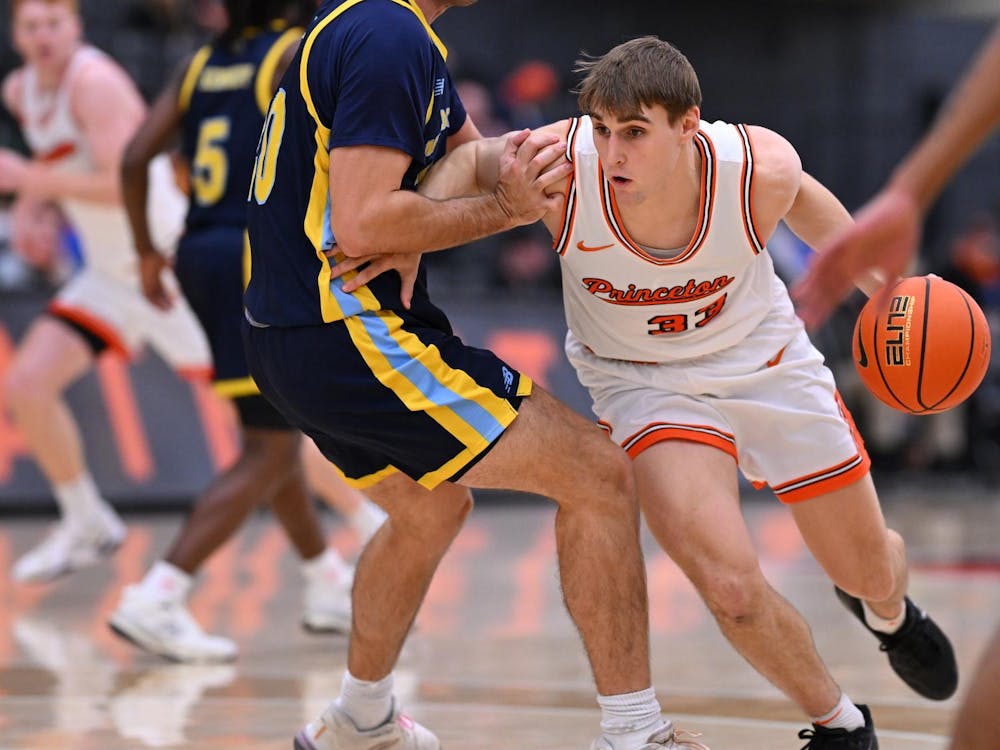If someone puts a voodoo doll over a fire, someone else will supposedly feel the heat by virtue of some sort of magical connection.
But Penn proved that no magic is required to perform this kind of feat: When it dropped its No. 1 women's squash player down to the No. 2 spot, Princeton subsequently fell to the No. 2 spot in the nation for the first time in three years.
After a nearly perfect season, the women's squash team (11-2 overall, 5-1 Ivy League) fell at Yale to the Quakers, 5-4, on Feb. 20 in the final round of the Howe Cup. No. 1 Julia Beaver '01 breezed through her match against Penn's Katie Patrick, while No. 2 Meredith Quick '01 fell, 3-0, to Runa Reta.
In Penn's 5-4 victory over Princeton on Jan. 26, Reta had played at the No. 1 spot for the Quakers, while Patrick had been No. 2. Patrick defeated Quick in that match, but the Tiger won a rematch between the two at the Constable Invitational in late January.
At the Howe Cup, however, the two Quakers reversed their positions. Beaver gave Princeton its usual victory at No. 1, but if Quick's win over Patrick at the Constable Invitiational gave the Tigers any hope of winning a third matchup between the two at the No. 2 spot in the Howe Cup finals, such dreams — and the matchup — never materialized. Instead, Reta easily disposed of Quick.
Lone blemish
For Beaver, the team national title would be her only source of disappointment on the year. She went on to win her second straight individual WISRA national championship when, on March 5, she defeated Yale's Laura Keating in five games in Williamstown, Mass.
This tournament proved a bit of a challenge for the Tiger, however. She nearly lost to Cornell's Olga Puidgemont-Sola and was in fact one point away from losing when she pulled an amazing comeback that brought her victory in five games.
A rally carried her to success in the final match as well. Behind Keating by three points in the final game, she scored eight in a row to stop the Eli.

"My road to the championship was very difficult and there were many times when I doubted that I could win," Beaver said. "[Keating] forced me to play the best squash I ever have."
But Beaver was not the only individual to perform well in the national tournament. Quick made it to the quarterfinals, and No. 3 Blair Irwin '00 advanced to the round of 16.
Beaver would then take her game to even greater heights, finishing second at U.S. Women's Nationals March 16-19 — a tournament that included several professionals.
Bullies
As it had during the 1999 season, Princeton dominated many weaker teams, with Cornell alone putting up a fight on its unusually narrow courts. Princeton found itself on top of most of the stronger teams as well, managing to defeat both Harvard and Yale, 5-4.

Penn, however, proved to be the Achilles' heel on Princeton's otherwise untouchable domination. Compared to the Tigers, the Quakers had graduated very few seniors in 1999 and so had a more experienced squad. The fact that Princeton stood up so well in the face of such experience is simply a testimony to the raw talent of the younger team.
Next season, however, Penn will no longer have such an advantage. Princeton only graduates two seniors, while No. 5 Emily Eynon '02, No. 6 Anna Minkowski '02 and No. 7 Courtenay Green '02 all have two years under their belts, and — most importantly — Beaver and Quick still have another year to go. Penn may not hold the Howe Cup for long.







